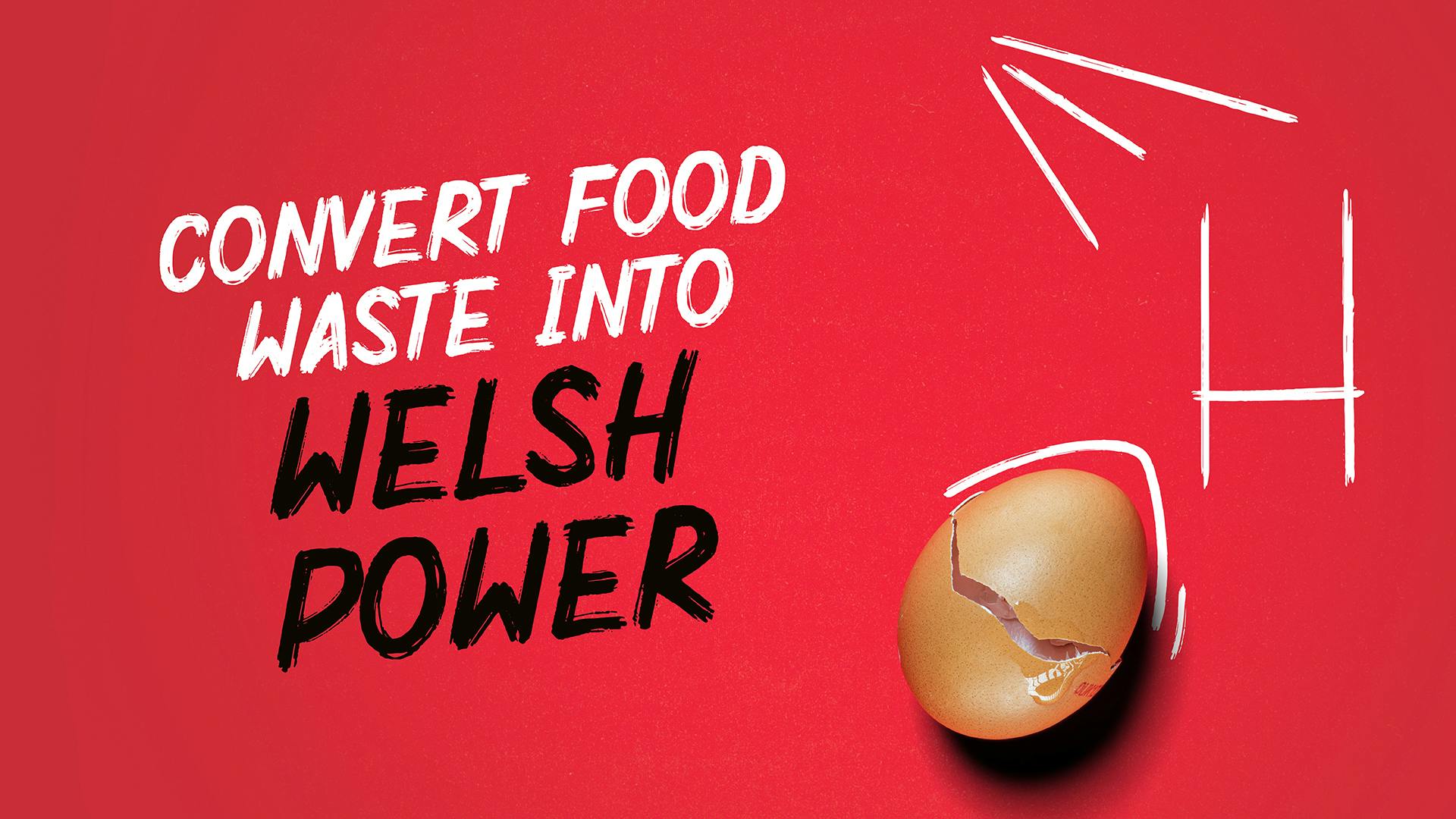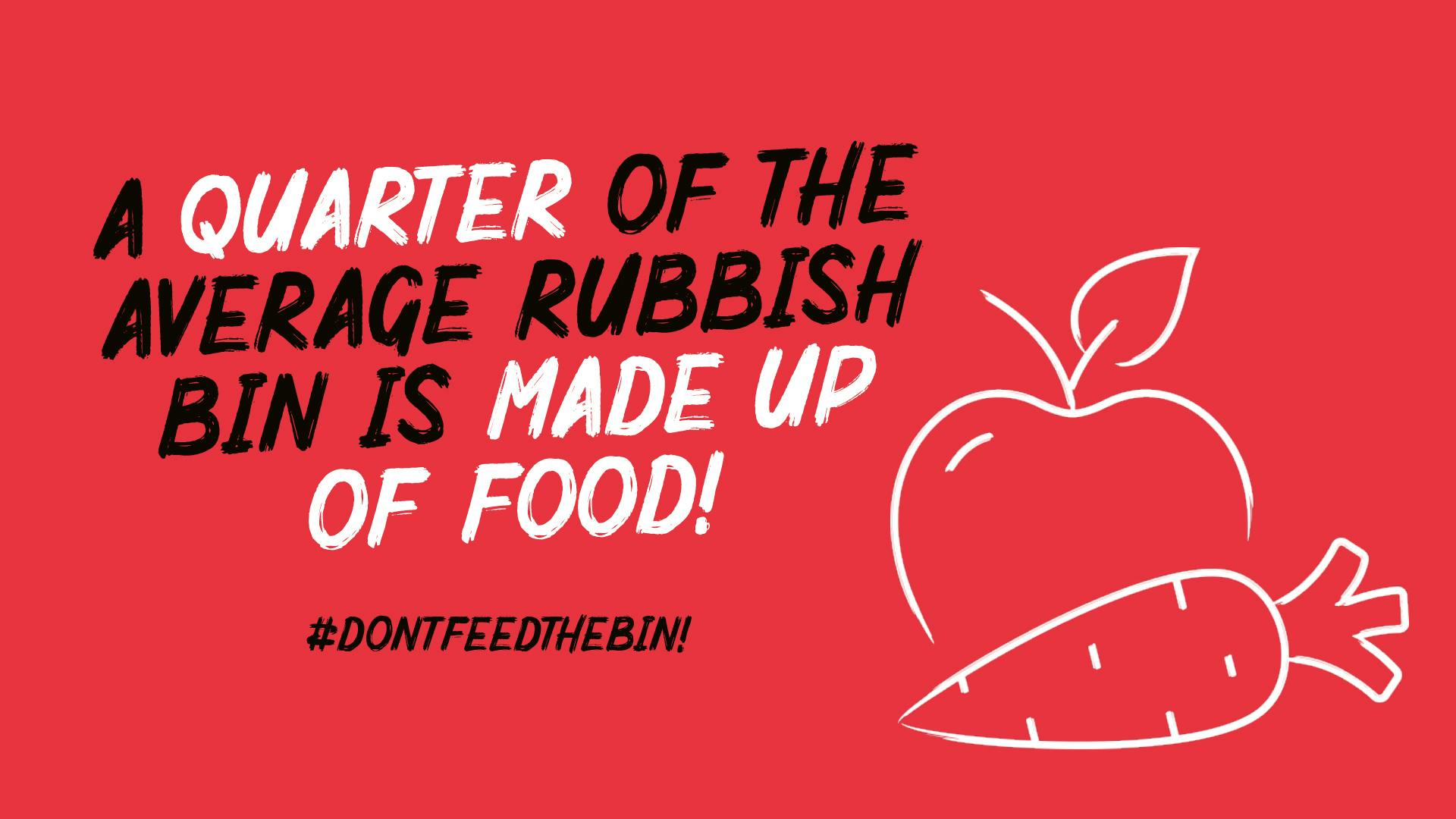
The average Welsh household throws away £49 per month
90% of us agree that food should NEVER go in the rubbish, yet we throw away enough food to fill 3300 double-decker buses, which is costing us a fortune!
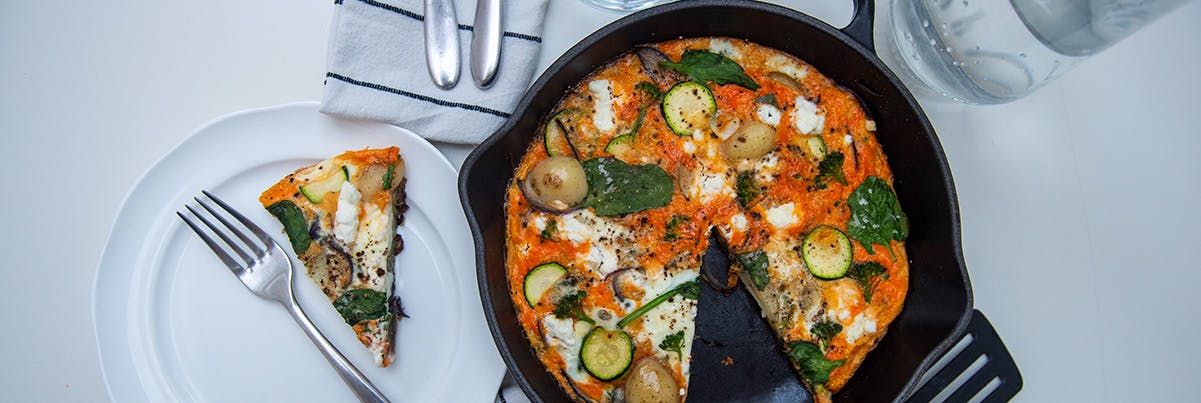
Save time and money
Save your cash from the bin by transforming food you have left in the fridge into delicious, flexible and easy meals, and recycle what you can't eat to help create power!
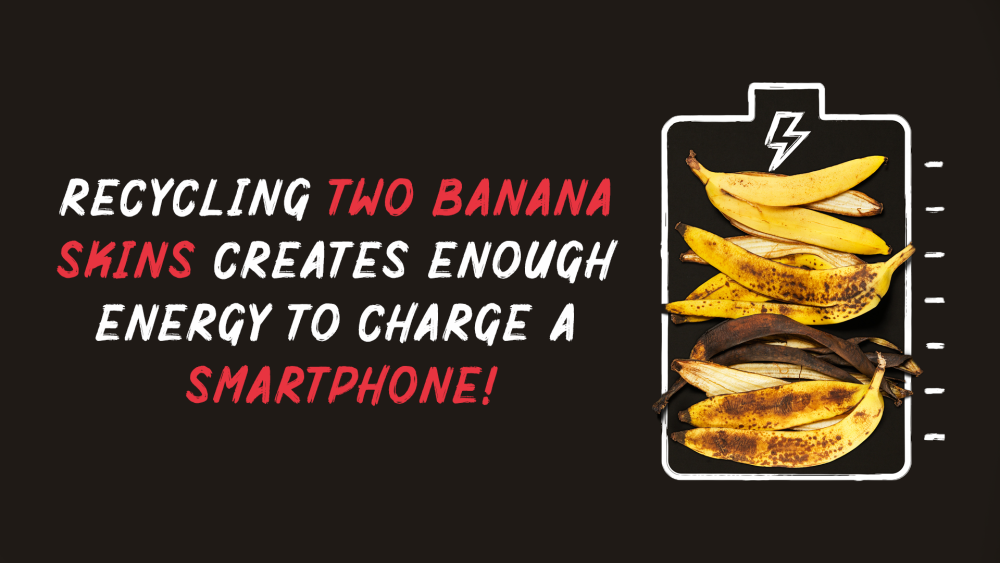
If you can’t eat it, recycle it!
Whether it’s teabags, bones or even out of date food – no matter how yucky – should go in the food caddy. In Wales, food waste is recycled into renewable energy.
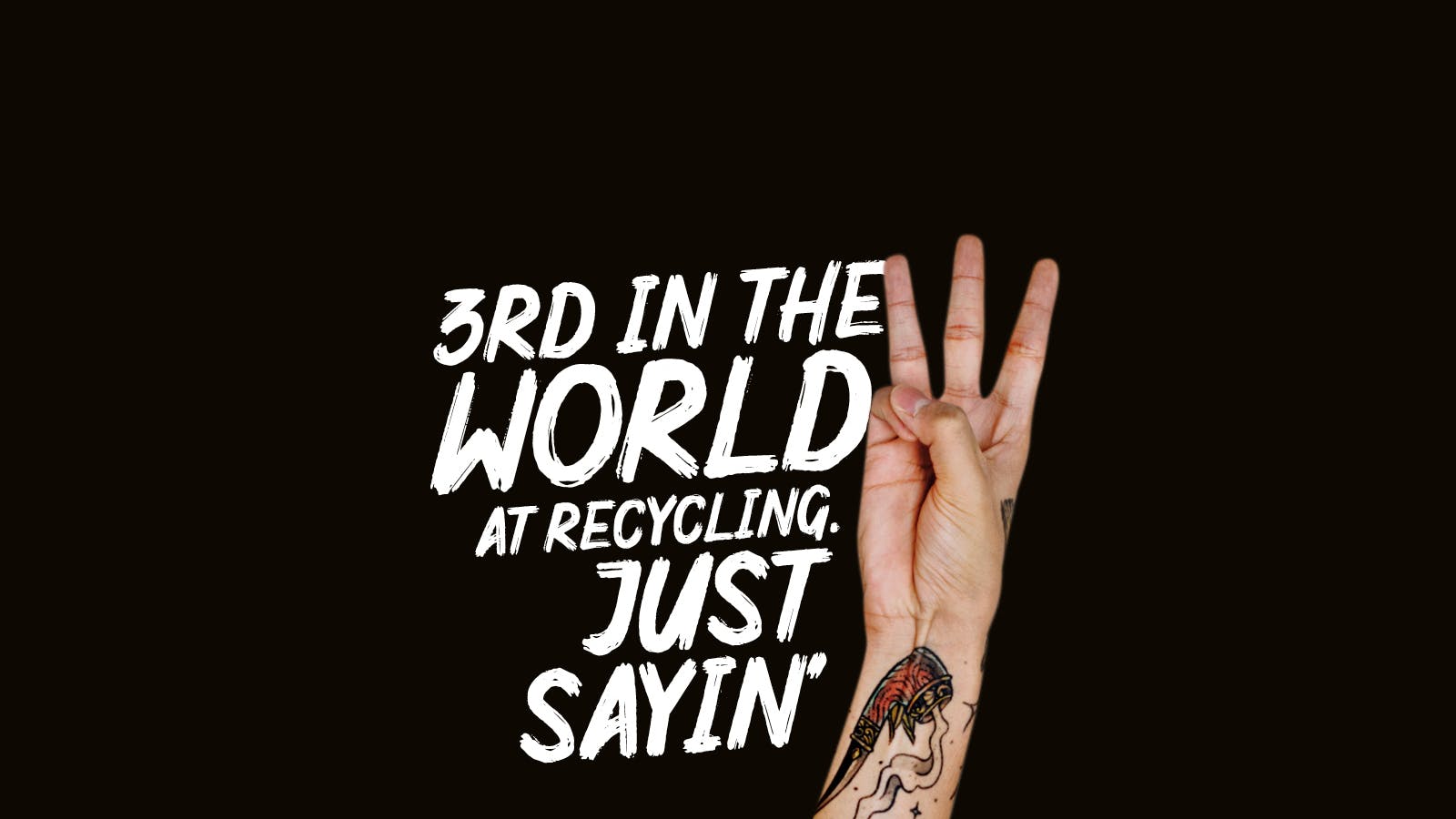
That’s why Wales is smashing it!
80% of us are already recycling our food waste but we need to go even further. Let’s get Wales to #1 by recycling all our food waste. Think twice. Don’t feed the bin.
How does food waste create power?
When collected from your home, food waste is taken to an 'anaerobic digestion’ facility where the methane is harnessed and transformed into biogas, generating energy. Check out Matt Pritchard's video to see this amazing process in action!
Savvy tips to make your food go further
Pressed for time but want to avoid wasting good food and money? Explore our easy, flexible and nutritious recipe ideas designed to effortlessly boost your favourite meals and snacks.
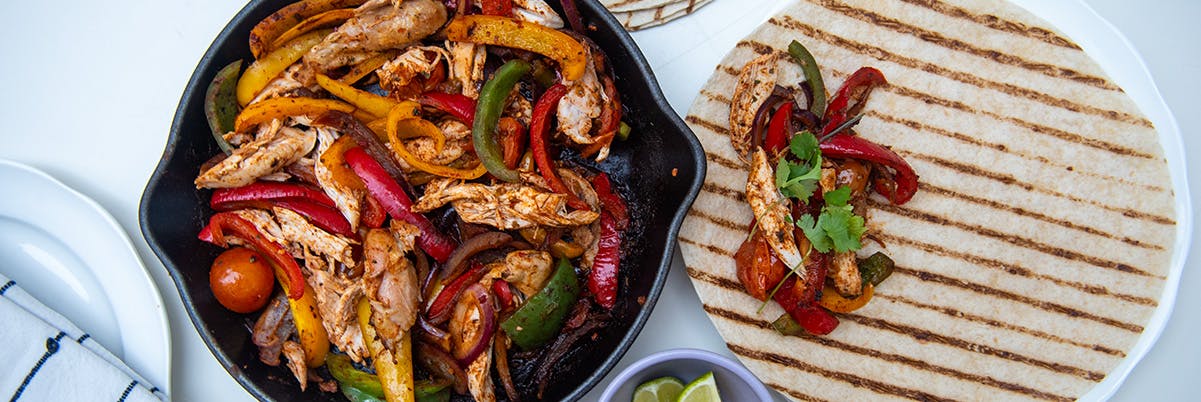
Recycle your food waste like a pro – Matt’s 5 top tips to avoid “ych a fi”
“Some people think recycling food is a bit ‘ych a fi’, but it doesn’t have to be”. Recycling food waste actually creates fewer smells and is more hygienic than putting it in the bin. Avoid the yuck factor by following Matt’s top tips.
Calling all teachers!
Free curriculum-linked activities and competition.
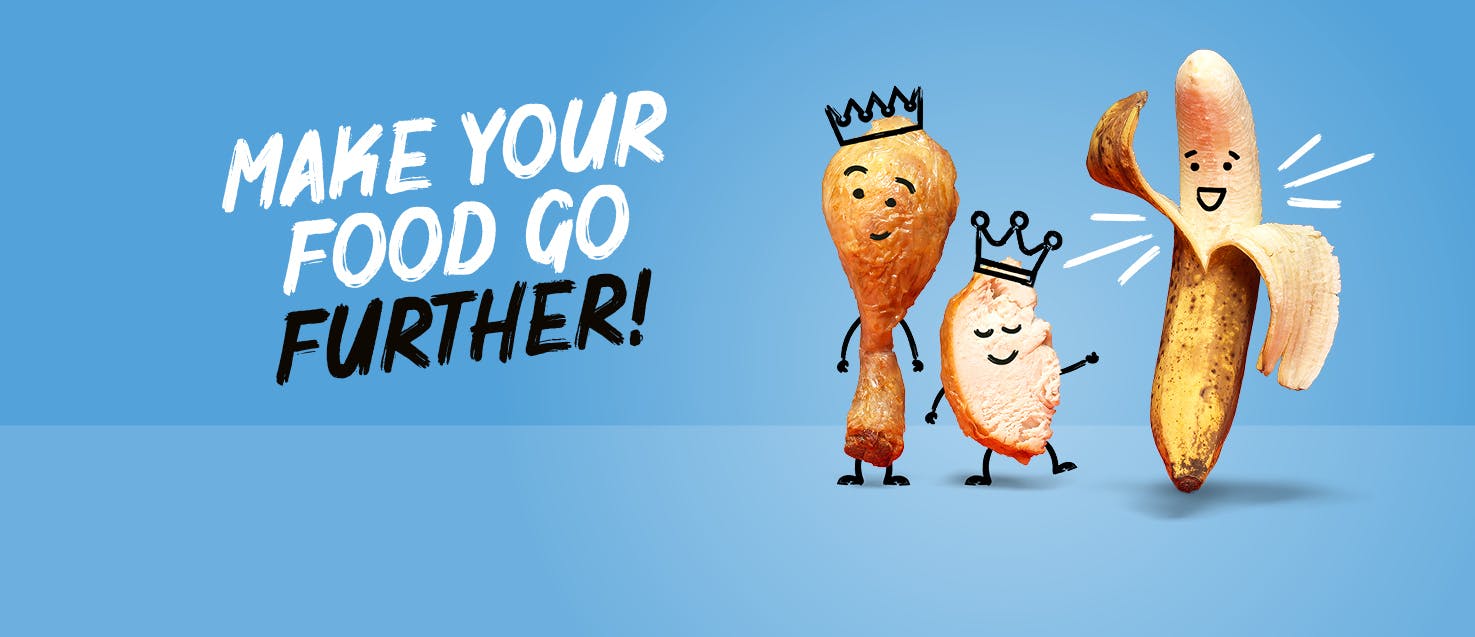
This spring, join the fight against food waste!
Learn how to make your food go further and create power.
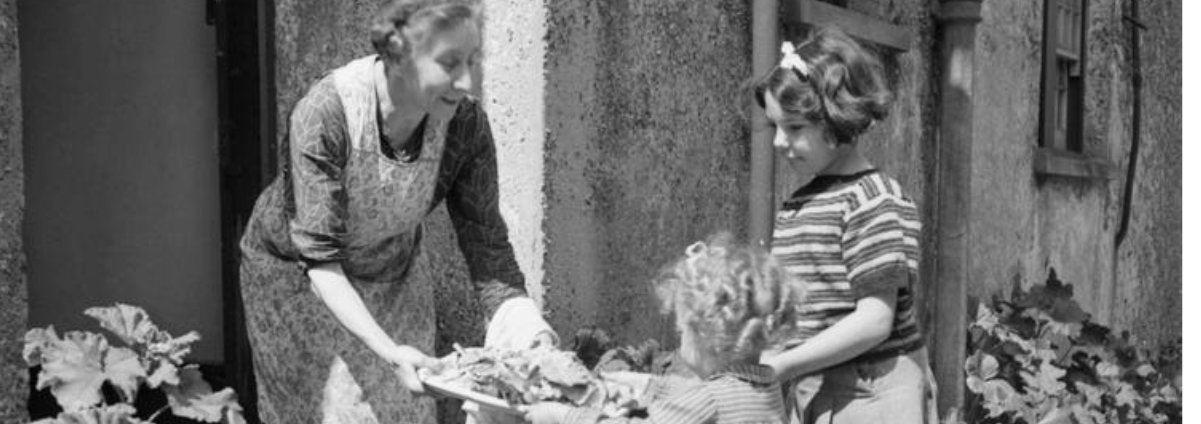
Recycling Then and Now - Melba’s Story
Melba won a competition to show why recycling was important in wartime.
